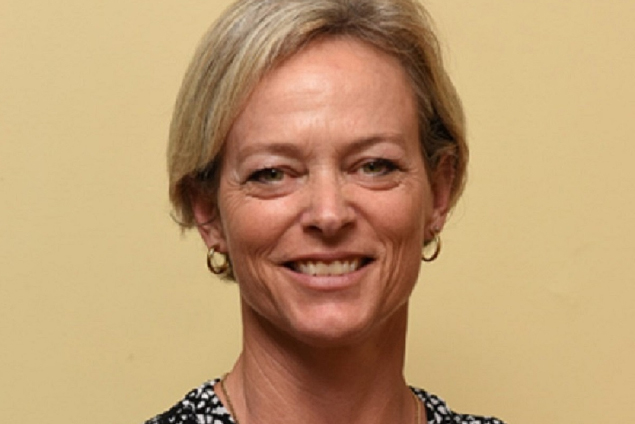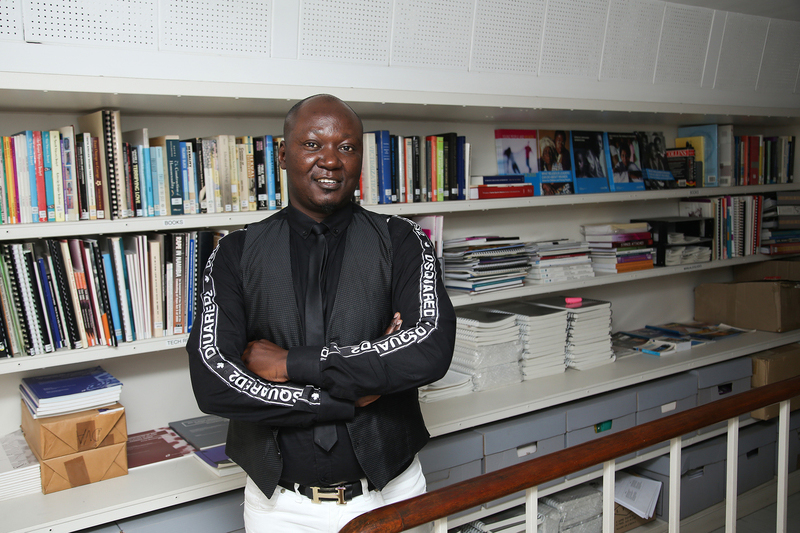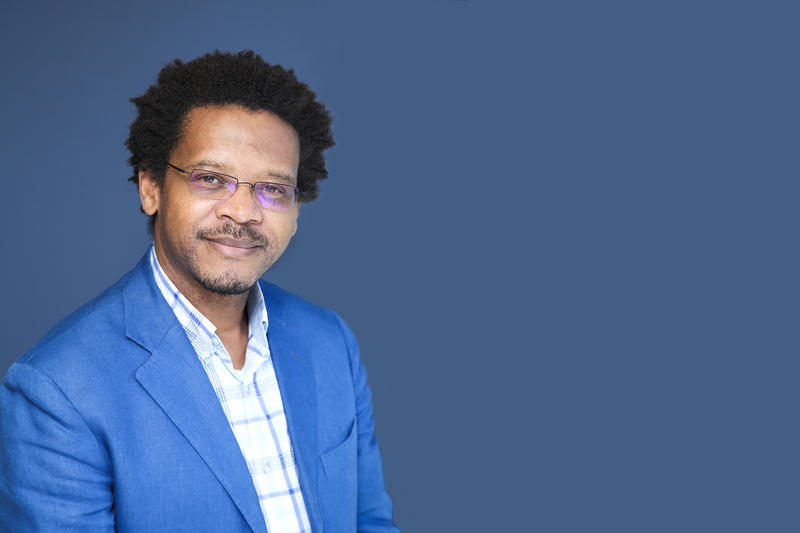Grants give African data science a boost
12 NOVEMBER 2021 | STORY NOBHONGO GXOLO. Read time 8 min.


12 NOVEMBER 2021 | STORY NOBHONGO GXOLO. Read time 8 min.
Infrastructure and capacity development are a big focus of boosting health research on the African continent. This work will be facilitated through five-year grants awarded by the United States National Institutes of Health (NIH) Common Fund’s Harnessing Data Science for Health Discovery and Innovation in Africa, to three data scientists at the University of Cape Town’s (UCT) Institute of Infectious Disease and Molecular Medicine (IDM), based at the Faculty of Health Sciences (FHS).

Professor Nicky Mulder, Department of Integrative Biomedical Science, Faculty of Health Sciences. Photo Supplied.
Professor Nicky Mulder and Dr Michelle Skelton, the project manager at the Human Heredity and Health in Africa (H3Africa) Coordinating Centre, have been awarded an NIH grant to run the Open Data Science Platform (ODSP) and Coordinating Centre (CC) for the NIH’s DS-I Africa (Harnessing Data Science for Health Discovery and Innovation in Africa) Consortium.
“The application of data science methodologies to large-scale, diverse and complex biomedical data sets for novel discoveries requires access to data, tools, workflows and computing infrastructure, along with training and support. With many of these lacking in Africa, including the skills for execution, there is a need to develop new infrastructure that considers the African context and addresses barriers present in low- and middle-income countries,” explained Mulder, a principal investigator at H3ABioNet (the Pan African Bioinformatics Network for H3Africa).
The ODSP will develop a flexible, scalable open data science platform for the DS-I Africa consortium to find and access data, select tools and workflows, and run analyses on a choice of computing environments – all through easy-to-use workspaces. Administration and support of the core resources and consortium activities will be coordinated by the CC. Together, the ODSP and CC will provide infrastructure for researchers to use data science technologies to deliver cutting-edge biomedical research for health, while promoting cohesion, collaborative cross-consortium activities, and engagement with external stakeholders to facilitate innovation and translation.
According to Mulder, the ODSP is a natural progression of their work at H3ABioNet. She explained: “The CC will draw on the experience of the H3Africa CC in coordinating activities of a pan-African consortium. H3ABioNet has developed bioinformatics capacity in Africa to enable scientists from the continent to analyse their genomics data. We developed tools and workflows, managed H3Africa data through the archive and catalogue, and created data portals to ease access to African data.”
The ODSP will draw on these outputs, extending the tools to incorporate more data science applications and implement some of the standards and workflows developed through H3ABioNet/H3Africa. The award will help ensure longer-term sustainability for their outputs and enable them to broaden their scope-of-work across more diverse data types and applications, while expanding their team to include more data scientists.
The ODSP component has 11 partners in Africa, the United States and the United Kingdom.

Associate Professor Emile Chimusa, Department of Pathology, Faculty of Health Sciences. Photo Je’nine May.
Associate Professor Emile Chimusa, the convenor of the Human Genetics and Forensic Genetics Honours programme within the Division of Human Genetics, has also been awarded a DS-I Africa grant from the NIH, for a project titled Computational Omics and Biomedical Informatics Programme (COBIP).
Despite the significant human health and disease burden in Africa, no biomedical data science graduate degree programmes in computational omics, clinical informatics and translational research are offered on the continent. To foster research training that will cultivate graduates who are able to respond with agility to future biomedical data science needs and develop innovative solutions to address African health challenges, formal interdisciplinary training in biomedical data science is key.
COBIP will provide innovative educational infrastructure and research opportunities as well as links between clinicians, researchers and biomedical industries through placements and internships. Through its graduates the programme will impact African biomedical data science research and stimulate diagnostics, therapeutic selection and drug development to support improved healthcare on the continent and globally.
“This award will add significant value to my work by enabling me to be part of the DS-I Africa consortium, while allowing me to train the next generation of biomedical scientists through interdisciplinary training around data science, computational omics and imaging data science,” said Chimusa.
For this research training programme, UCT will partner with the Oregon Health and Science University. The programme will place strong emphasis on training graduate students and faculty from participating African institutions. This will be done through a combination of contact and online teaching, research projects and internships to foster biomedical data science research, aiming to build critical capacity in data science while driving the development of innovative solutions to African health challenges.

Professor Ambroise Wonkam, Departments of Pathology and Medicine, Faculty of Health Sciences. Photo Je’nine May.
Professor Ambroise Wonkam has been awarded a grant from the NIH for a project titled Public Understanding of Big Data in Genomics Medicine in Africa (PUBGEM-Africa).
The project aims to explore and establish some major trends on emerging issues, particularly those related to models of public engagement in big data use for genomics healthcare and innovation in Africa.
There is growing acceptance that the greater availability to scientists of genomes from people from Africa will improve understanding globally of genomic variations, both for complex disease conditions and for monogenic diseases (those arising from a variation in a single gene). However, there remain concerns that the scientific imperative associated with increasing the information on African genomic variations in public databases won’t necessarily translate into enhancing genetic medicine implementation in Africa.
“We will investigate [the] perspectives of various stakeholders of the research ecosystem: data providers, data users, funders, [the] ethical review board, etc. It is our expectation that PUBGEM research outcomes will inform the continent’s development of appropriate and urgently needed guidelines and regulations, as we enter the third decade post the completion of the Human Genome Project, in which African genomics research will take centre stage.”
With a focus on big data in genomics medicine, PUBGEM-Africa aims to use empirical methods to address some of the pertinent ethical, legal and social implications (ELSI) of data science research from an African perspective, while contributing to policy discussion on the continent – especially as this relates to models of public engagement in big data use for healthcare and innovation, and particularly in South Africa, Cameroon and Ghana, where the project will be carried out. PUBGEM-Africa will set up an ELSI helpdesk for data science in health in Africa, and provide small grants and mentorship support to emerging data science bioethics scholars in Africa.
Wonkam, the director of Genetic Medicine of African Populations (GeneMAP), explained that the grant will “consolidate the strengths of our research ideas and underscore the sustainable international competitiveness of our work, while recognising the urgency of the research agenda in the questions around ELSI when it comes to data sciences in genomics in Africa that are not being addressed adequately. It will provide us [with] resources to investigate some aspects of this agenda through research across the continent, while increasing capacity development.”